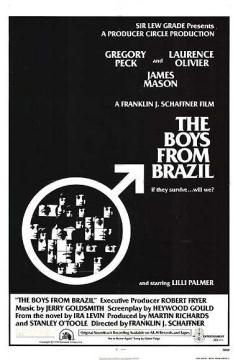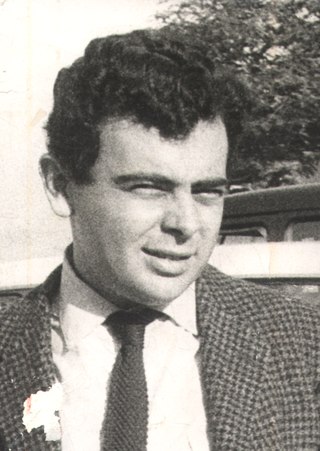An incomplete list of films produced in Brazil in the 1970s. For an alphabetical list of films currently on Wikipedia see Category:Brazilian films
An incomplete list of films produced in Brazil in the 1970s. For an alphabetical list of films currently on Wikipedia see Category:Brazilian films
| Title | Director | Cast | Genre | Notes | ||
|---|---|---|---|---|---|---|
| 1972 | ||||||
| Ali Babá e os Quarenta Ladrões | ||||||
| Amazônia | ||||||
| Amor, Carnaval e Sonhos | ||||||
| O Anjo Negro | ||||||
| O Azarento | ||||||
| Joao | George Sluizer | Entered into the 22nd Berlin International Film Festival | ||||
| O Profeto da Fome (The Prophet of Hunger) | Mario Lima | José Mojica Marins | Drama | |||
| Quando os Deuses Adormecem (When the Gods Fall Asleep) | José Mojica Marins | José Mojica Marins | Black comedy | |||
| Sexo E Sangue na Trilha do Tesouro (Sex and Blood in the Trail of the Treasure) | José Mojica Marins | José Mojica Marins | Horror | |||
| Title | Director | Cast | Genre | Notes | ||
|---|---|---|---|---|---|---|
| 1973 | ||||||
| Amante Muito Louca | ||||||
| Aladim e a Lâmpada Maravilhosa | ||||||
| All Nudity Shall Be Punished | Arnaldo Jabor | Won the Silver Bear at Berlin | ||||
| The Awakening of Annie | ||||||
| Anjo Loiro | ||||||
| Aquelhas Mulheres | ||||||
| Boi de Prata | ||||||
| Sagarana: The Duel | Paulo Thiago | Entered into the 24th Berlin International Film Festival | ||||
| Tati | Bruno Barreto | Entered into the 8th Moscow International Film Festival | ||||
| O Picapau Amarelo | Geraldo Sarno | |||||
| Title | Director | Cast | Genre | Notes | ||
|---|---|---|---|---|---|---|
| 1974 | ||||||
| Ainda Agarro Esta Vizinha... | ||||||
| Adultério, as Regras do Jogo | ||||||
| As Alegres Vigaristas | ||||||
| Amor e Medo | ||||||
| O Amuleto de Ogum | Nelson Pereira dos Santos | Entered into the 1975 Cannes Film Festival | ||||
| O Anjo da Noite | ||||||
| Zézero | ||||||
| Banana Mecânica | ||||||
| Biblioteca Nacional | ||||||
| The Night of the Scarecrow | Sérgio Ricardo | |||||
| O Exorcismo Negro (The Bloody Exorcism of Coffin Joe) | José Mojica Marins | José Mojica Marins | Black comedy | |||
| Title | Director | Cast | Genre | Notes | ||
|---|---|---|---|---|---|---|
| 1975 | ||||||
| Ainda Agarro Esse Machão | ||||||
| Amadas e Violentadas | ||||||
| Amantes, Amanhã Se Houver Sol | ||||||
| Ana, a Libertina | ||||||
| Assim Era a Atlântida | ||||||
| As Audaciosas | ||||||
| As Aventuras Amorosas de Um Padeiro | ||||||
| As Aventuras de Um Detetive Português | ||||||
| Bacalhau | ||||||
| Blablablá | ||||||
| Bonecas Diabólicas | ||||||
| Joanna Francesa | Carlos Diegues | Jeanne Moreau, Eliezer Gomes | Drama | Franco-Brazilian co-production | ||
| Title | Director | Cast | Genre | Notes | ||
|---|---|---|---|---|---|---|
| 1979 | ||||||
| Alucinada Pelo Desejo | ||||||
| Bye Bye Brasil | Carlos Diegues | Palme d'Or nominated film at the 1980 Cannes Film Festival | ||||
| Histórias Que Nossas Babás Não Contavam | Softcore porn | |||||
| A Intrusa | Carlos Hugo Christensen | Drama | ||||
| Amante Latino | ||||||
| Os Amantes da Chuva | ||||||
| As Amiguinhas | ||||||
| Amor e Traição | ||||||
| Amerika | ||||||
| Amor bandido | ||||||
| A Banda das Velhas Virgens | ||||||
| Bandido, Fúria do Sexo | ||||||
| O Bom Burguês | ||||||
| As Borboletas Também Amam | ||||||

Brazil, officially the Federative Republic of Brazil, is the largest country in South America and in Latin America. Brazil is the world's fifth-largest country by area and the seventh most populous. Its capital is Brasília, and its most populous city is São Paulo. The federation is composed of the union of the 26 states and the Federal District. It is the only country in the Americas to have Portuguese as an official language. It is one of the most multicultural and ethnically diverse nations, due to over a century of mass immigration from around the world, and the most populous Roman Catholic-majority country.

Brazil is a 1985 sci-fi dystopian dark comedy film directed by Terry Gilliam and written by Gilliam, Charles McKeown, and Tom Stoppard. The film stars Jonathan Pryce and features Robert De Niro, Kim Greist, Michael Palin, Katherine Helmond, Bob Hoskins, and Ian Holm.

Saludos Amigos is a 1943 American live-action/animated propaganda anthology film produced by Walt Disney and released by RKO Radio Pictures. It is the sixth Disney animated feature film and the first of the six package films produced by Walt Disney Productions in the 1940s. Set in Latin America, it is made up of four different segments; Donald Duck stars in two of them and Goofy stars in one. It also features the first appearance of José Carioca, the Brazilian cigar-smoking parrot. Saludos Amigos premiered in Rio de Janeiro on August 24, 1942. It was released in the United States on February 6, 1943.

The Boys from Brazil is a 1978 science fiction thriller film directed by Franklin J. Schaffner. It stars Gregory Peck and Laurence Olivier, and features James Mason, Lilli Palmer, Uta Hagen, Anne Meara, Denholm Elliott, and Steve Guttenberg in supporting roles. The film is a British-American co-production, based on the 1976 novel of the same title by Ira Levin. It was nominated for three Academy Awards.
2004 in film is an overview of events, including the highest-grossing films, award ceremonies, festivals, a list of country-specific lists of films released, notable deaths and film debuts. Shrek 2 was the year's top-grossing film, and Million Dollar Baby won the Academy Award for Best Picture.
The following is an overview of events in 2006, including the highest-grossing films, award ceremonies and festivals, a list of films released and notable deaths. Pixar celebrated its 20th anniversary in 2006 with the release of its 7th film, Cars.

Glauber de Andrade Rocha was a Brazilian film director, actor and screenwriter. He was one of the most influential moviemakers of Brazilian cinema and a key figure of Cinema Novo. His films Black God, White Devil and Entranced Earth are often considered to be two of the greatest achievements in Brazilian cinematic history, being selected by Abraccine as, respectively, the second and fifth best Brazilian films of all-time. Rocha also the distinction of having the most films on Abraccine's list: 5 films.
New York most commonly refers to:

Brazilian cinema was introduced early in the 20th century but took some time to consolidate itself as a popular form of entertainment. The film industry of Brazil has gone through periods of ups and downs, a reflection of its dependency on state funding and incentives.
Michael may refer to:
A list of films produced in Brazil ordered by year and split onto separate pages by decade. For an alphabetical list of films currently on Wikipedia see Category:Brazilian films
The history of Brazilian animation is relatively recent. In the first half of the 20th century, there were some small experiments produced in animation without much continuity, to the emergence of several animated films in the other half of the century. The 21st century saw the advent of many animated series for television.